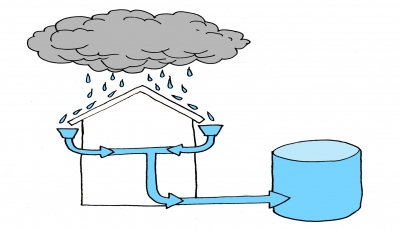Browsing Liquid Waste Obstacles with Reclaim Waste Melbourne's Experience
Wiki Article
Fostering Source Performance and Environmental Management Via Fluid Waste Elimination Programs
In the world of environmental stewardship, the monitoring of liquid waste stands as a critical juncture where resource efficiency and ecological defense merge. Liquid waste removal programs play an essential duty in securing our ecological communities and making certain lasting advancement techniques. By diligently addressing the disposal of liquid waste, markets and neighborhoods can not only mitigate prospective threats yet additionally unlock opportunities for reusing and repurposing important resources. As we browse the complexities of waste monitoring in a quickly advancing globe, the synergy between ingenious innovations, strict guidelines, and forward-thinking strategies ends up being increasingly extremely important. Via a lens of proactive interaction and strategic foresight, the landscape of fluid waste management introduces a tapestry of challenges and possibilities that beckon us to explore the path towards a greener and even more lasting future.Relevance of Liquid Waste Removal
The significance of fluid waste removal depends on its critical function in preserving environmental wellness and safeguarding public well-being. Fluid waste, if not effectively handled, can present severe risks to environments, water sources, and human health. With reliable elimination procedures, harmful materials such as pollutants, virus, and chemicals are protected against from polluting the environment and causing destructive effects.Correct liquid waste removal also aids in avoiding the spread of illness and decreasing the possibility for groundwater contamination. By safely throwing away liquid waste, the risk of waterborne diseases and pollution-related health and wellness problems is considerably minimized - Reclaim Waste Melbourne. In addition, efficient removal practices add to maintaining the total sanitation and aesthetic appeals of communities, thereby boosting the top quality of life for residents
In addition, liquid waste elimination plays a crucial duty in supporting lasting growth and guaranteeing compliance with environmental guidelines. By adhering to proper waste management organizations, sectors and methods can lower their environmental footprint and demonstrate business obligation. Ultimately, buying robust fluid waste elimination programs is crucial for promoting environmental stewardship and fostering a healthier, safer future for all.

Benefits of Efficient Disposal
Reliable disposal of liquid waste not just safeguards environmental wellness and public health however additionally yields countless benefits that expand beyond prompt control procedures. Via processes like recycling and power healing, important resources can be drawn out from fluid waste, advertising sustainability and lowering the stress on raw materials. In general, the advantages of effective fluid waste disposal are diverse, incorporating environmental protection, source performance, and financial benefits.Technologies for Waste Treatment
Making use of sophisticated innovations for waste treatment plays a vital role in guaranteeing the reliable administration and risk-free disposal of fluid waste. Among the essential innovations employed in liquid waste treatment is organic therapy. This method utilizes bacteria to damage down natural matter in the waste, transforming it right into safe byproducts. An additional common innovation is chemical therapy, where chemicals are contributed to the waste to neutralize hazardous parts or speed up pollutants for removal. Physical treatment techniques, such as purification and sedimentation, are also commonly made use of to separate solids from liquid waste.Advanced oxidation processes (AOPs) have acquired popularity for their capacity to degrade relentless natural toxins in fluid waste with the generation of extremely reactive hydroxyl radicals. Membrane innovations like reverse osmosis and ultrafiltration are efficient for separating impurities from fluid waste streams. Additionally, thermal therapy methods such as incineration can be used for the complete damage of harmful elements in liquid waste. In general, the combination of varied therapy technologies guarantees ecologically friendly and extensive monitoring of fluid waste.
Function of Regulations and Conformity
Reclaim Waste Melbourne In the realm of liquid waste administration, adherence to regulative structures and compliance requirements is extremely important for securing ecological health and sustainability. Rules play a vital role in regulating the appropriate handling, treatment, and disposal of fluid waste to stop harm to ecological communities and human health and wellness. By developing clear guidelines and requirements, regulatory bodies guarantee that organizations and individuals included in liquid waste administration run in an ecologically accountable manner.Conformity with these regulations is not only a legal demand yet also a moral obligation to safeguard the setting for current and future generations. It entails implementing best practices in waste collection, therapy, transport, and disposal to reduce environmental effect and promote resource effectiveness. Non-compliance can cause penalties, lawsuit, and reputational damages for organizations, highlighting the significance of supporting governing standards.

Future Patterns in Waste Administration

An additional crucial pattern in waste administration is the adoption of innovative data analytics and fabricated intelligence to optimize waste collection courses, enhance arranging procedures, and improve overall functional performance. These technologies enable waste management firms to make data-driven choices, causing cost savings and environmental benefits.
Furthermore, there is an expanding focus on the development of decentralized waste monitoring systems, such as onsite treatment facilities and mobile waste handling devices. These systems supply adaptability and scalability, enabling extra effective waste handling in diverse environments.
Conclusion
Finally, fostering source performance and environmental management via fluid waste removal programs is critical for sustainable development. Reliable disposal approaches, progressed innovations for waste treatment, and strict policies play vital functions in lessening environmental effect. Looking in advance, continuous technology and renovation in waste administration techniques will be vital for dealing with the expanding challenges of liquid waste disposal.In the world of environmental stewardship, the administration of fluid waste stands as an important juncture where source performance and environmental security merge (Reclaim Waste Melbourne).Utilizing sophisticated technologies for waste therapy plays an essential role in guaranteeing the efficient monitoring and risk-free disposal of fluid waste.In the world of fluid waste monitoring, adherence to regulatory frameworks and compliance requirements is vital for guarding environmental health and wellness and sustainability.In verdict, cultivating source performance and environmental protection via fluid waste elimination programs is essential for sustainable advancement. Looking ahead, continual technology and enhancement in waste monitoring practices will be important for addressing the expanding difficulties of liquid waste disposal
Report this wiki page